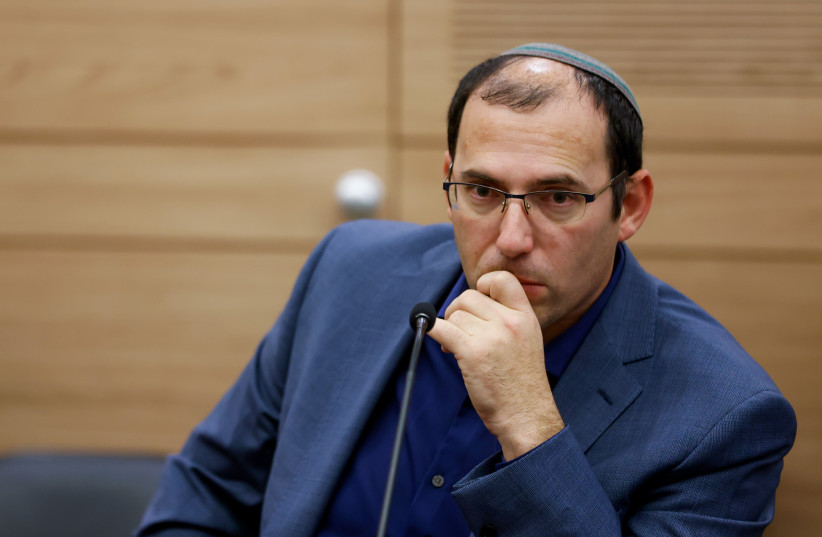Isaac Herzog is to be commended for the presidential role he has assumed in an attempt to resolve the judicial crisis facing Israel. He is playing the part of the responsible adult seeking to find a compromise between the government’s plan to reform the legal system and the stiff opposition against it.
In a rare, primetime address to the nation on Sunday night, Herzog made a passionate plea to the government to halt the legislative process to pave the way for negotiations with the opposition on a broad compromise.
“I believe that the totality of all parts of the reform in its current form raises deep concerns about their potential negative impact on the democratic foundations of the State of Israel,” Herzog stated, concluding with this appeal: “The spectacular Israeli mosaic is the secret of our strength. Israeli diversity leads to controversies. Conflicts and arguments cannot be denied, but since time immemorial we have known to give more space to what unites us. We knew how to be smart and see that the distance between us is the distance of reaching out a hand. The time has come to lend a hand.”
“The spectacular Israeli mosaic is the secret of our strength. Israeli diversity leads to controversies. Conflicts and arguments cannot be denied, but since time immemorial we have known to give more space to what unites us. We knew how to be smart and see that the distance between us is the distance of reaching out a hand. The time has come to lend a hand.”
Isaac Herzog
Failing to reach his goal but setting the tone for dialogue
So far, Herzog’s appeal has not achieved its goal, but it did set the tone for a dialogue between the government and the opposition toward a possible national reconciliation over some kind of compromise.
On Tuesday evening, Herzog met with opposition leader Yair Lapid and National Unity head Benny Gantz, as well as Constitution, Law and Justice Committee Chair MK Simcha Rothman (Religious Zionist Party), one of the leaders of the judicial reform, as part of his campaign for compromise.

After the meeting, Lapid said: “I presented the president with the basic issues on which we will not compromise – first and foremost, stopping the entire legislative process.” Gantz said he hoped that Prime Minister Benjamin Netanyahu would act responsibly in order “to prevent the division of the nation in the context of security and political challenges.”
For his part, Rothman called on Gantz and Lapid to “start talks without preconditions until the first reading of the law in the Knesset, in order to try to reach a broad agreement.”
Even though Herzog might not succeed in his mission, he is fulfilling the president’s essential role and we applaud him for it.
The powers of the president in Israel are primarily dictated by Basic Law: The Presidency and Basic Law: The Government. They are mostly ceremonial, with some notable exceptions – inter alia, leading the process of forming a government after elections, signing laws as well as international treaties approved by the Knesset, receiving the credentials of foreign diplomats, pardoning or commuting sentences of citizens, and ceremonially appointing judges to courts, including the Supreme Court, selected by the Judicial Selection Committee.
It is this last task that is particularly relevant to the legal reforms being proposed by the government. The Judicial Selection Committee was established exactly 70 years ago, in 1953, with the aim of preventing outside political pressure to ensure the independence of the judges.
Under the new legislation being presented as part of a package by Justice Minister Yariv Levin, there will be nine members of the committee: five ministers and Knesset members from the government and coalition; one MK from the opposition; the Supreme Court president; and two retired judges to be appointed by the justice minister, who serves as committee chair, in agreement with the Supreme Court president.
In preparing what Rothman called “part one” of the reform – two bills that his committee voted to send to the Knesset plenum on Monday – he argued that the reform would bring Israel in line with other democracies in the world, such as Canada, Ireland and New Zealand, where the ruling coalition has the power to appoint judges. This will become particularly pertinent in October this year, when Justice Esther Hayut, who took office in October 2017, is set to step down as president of the Supreme Court.
For the sake of national unity and consensus, the rule of law and a robust democracy, our fervent hope is that the president will be able to mediate a meaningful compromise between the coalition and the opposition.
